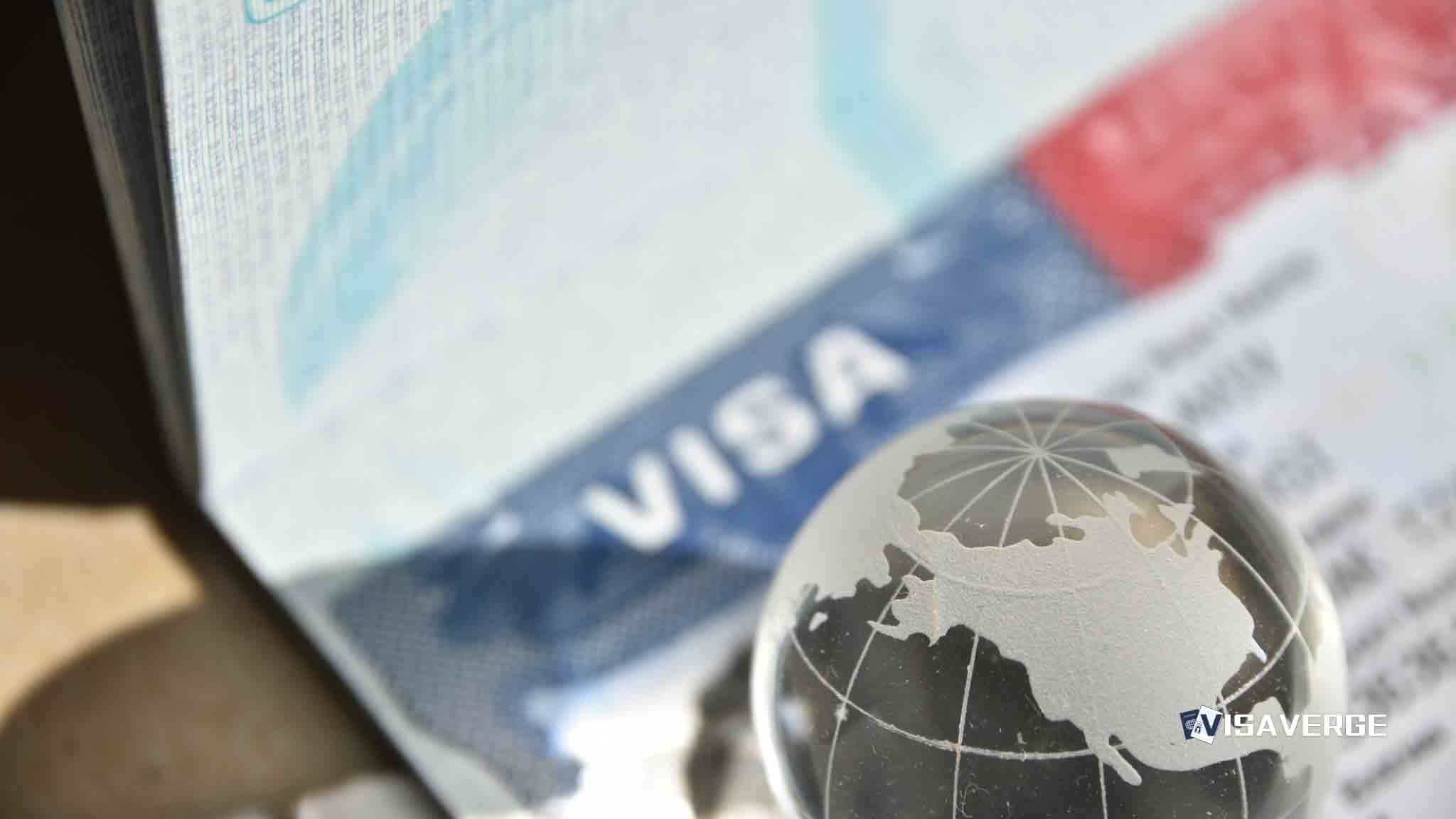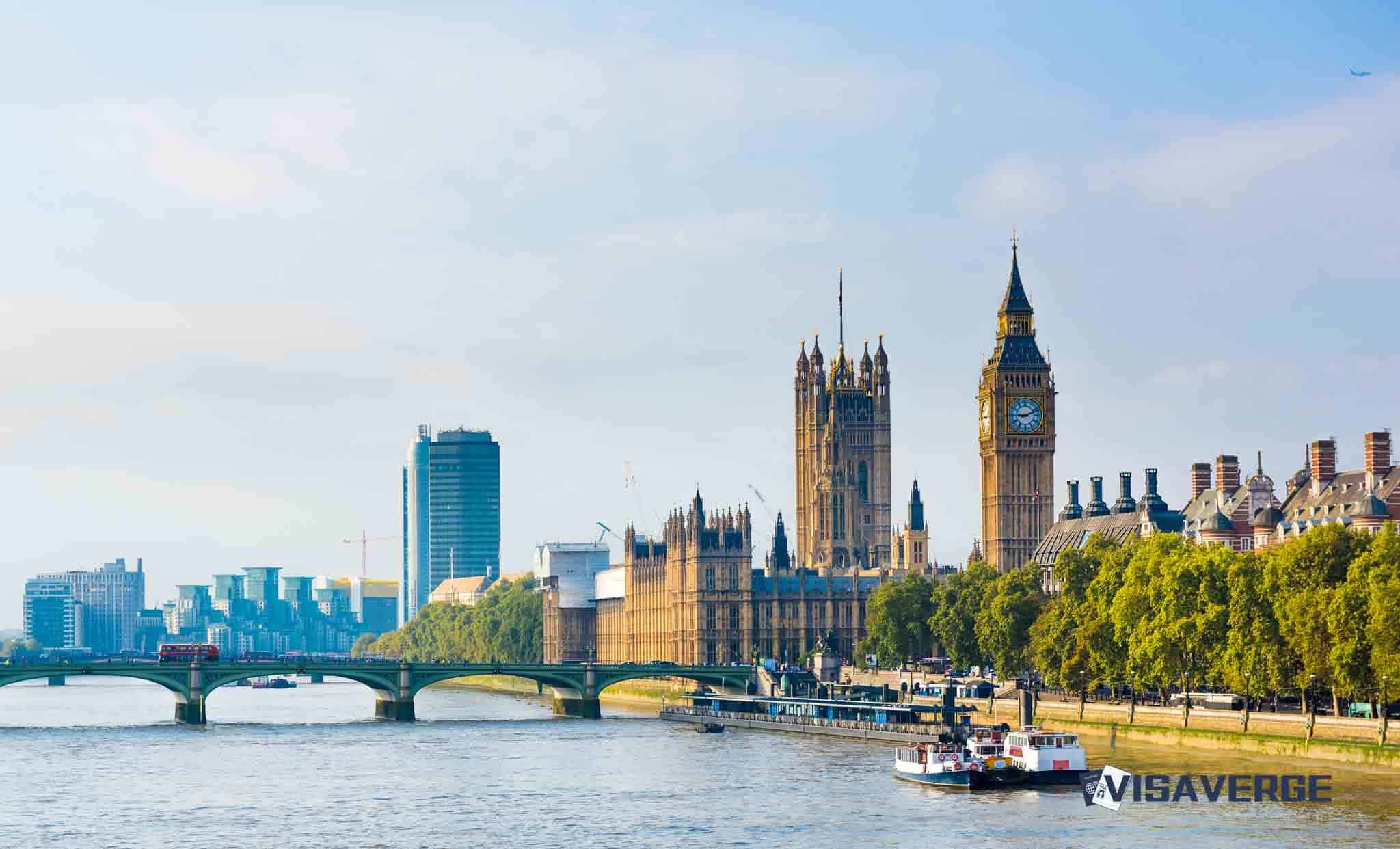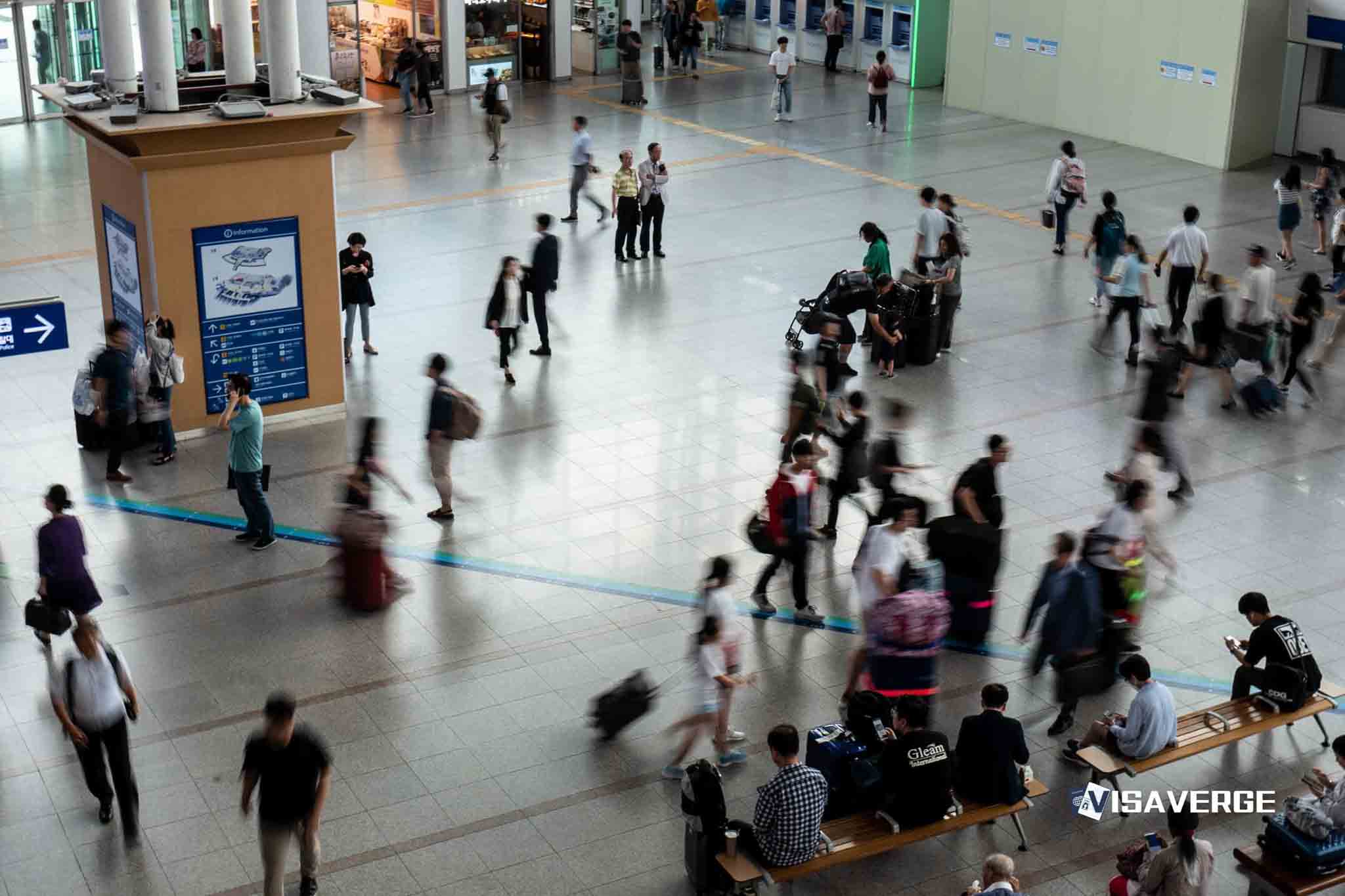Key Takeaways
• Dubai-based doctor faced three US visa rejections before planning new joint application with her husband in mid-2025.
• New US visa restrictions from June 9, 2025, suspend visas for nationals of 12 countries and partially for seven others.
• Visa rejections often result from weak ties to home country, financial concerns, inconsistent info, or nationality security policies.
A Dubai-based doctor is preparing for a new attempt at securing a US visa, despite facing three previous rejections. Her story highlights the challenges many skilled professionals encounter when applying for US visas, especially in the wake of recent policy changes that have made the process even more complex for certain nationalities. As she plans to apply again, this time with her husband, her experience sheds light on the broader landscape of US visa policies, the reasons behind frequent visa rejections, and what applicants can do to improve their chances.
Who, What, When, Where, and Why

The main subject is a Dubai-based doctor who has faced three US visa rejections: two when applying with her family and one solo rejection in 2016 for a medical observership from Pakistan. Now, in mid-2025, she is preparing to apply again for a US visa, this time alongside her husband. Her case is unfolding in Dubai, a major hub for international professionals, at a time when the United States 🇺🇸 has introduced new visa restrictions affecting nationals from 19 countries. These changes, effective June 9, 2025, have added new hurdles for many applicants, especially those from countries considered higher security risks.
Recent Policy Changes Affecting US Visas
On June 4, 2025, President Trump signed a new Executive Order titled “Restricting the Entry of Foreign Nationals to Protect the United States from Foreign Terrorists and Other National Security and Public Safety Threats.” This order suspends visa issuance for nationals from 12 countries across all visa types, including student and exchange visitor visas. Seven other countries face partial suspensions for certain visa categories. These changes took effect on June 9, 2025.
Key Details of the New Restrictions
- Full Suspension for 12 Countries: Afghanistan, Burma (Myanmar), Chad, Republic of Congo, Equatorial Guinea, Eritrea, Haiti, Iran, Libya, Somalia, Sudan, and Yemen.
- Partial Suspension for 7 Countries: Burundi, Cuba, Laos, Sierra Leone, Togo, Turkmenistan, and Venezuela. For these, only certain visas like visitor, student, and exchange visas are affected.
- Who Is Affected: The restrictions apply to people who are nationals of these countries, are outside the United States 🇺🇸 on or after June 9, 2025, and do not already have a valid US visa.
- Exemptions: There are some exemptions, but they are limited and require strong reasons or special circumstances.
If the Dubai-based doctor and her husband are not nationals of any of these 19 countries, these new rules may not directly affect their application. However, if they do hold one of these nationalities, their chances of getting a visa could be much lower unless they qualify for an exemption.
Why Are US Visas So Hard to Get?
The US visa process is known for being strict, especially for applicants from countries with higher rates of visa overstays or security concerns. Consular officers, who conduct visa interviews and make decisions, are trained to look for signs that an applicant might not return to their home country after their visit. They also check for financial stability and strong family or professional ties to the applicant’s home country.
For medical professionals like the Dubai-based doctor, applying for a visa to attend a medical observership (a short-term, non-paid training program) can be especially tough. The US government wants to be sure that these visitors will return home after their program and not try to stay in the United States 🇺🇸 illegally.
The Doctor’s Previous Visa Rejections
- 2016 Solo Rejection: The doctor applied from Pakistan for a medical observership and was denied. This is common for Pakistani nationals, who often face extra scrutiny due to security policies.
- Two Family Rejections: She also faced two rejections when applying with her family. Sometimes, applying as a family can help show strong ties to the home country, but if any family member is seen as a risk or if the officer suspects the family might try to stay in the United States 🇺🇸, the whole application can be denied.
How the US Visa Application Process Works
For those planning to attend a medical observership, the most common visa types are the B-1 (business visitor) or J-1 (exchange visitor) visas. Here’s a step-by-step look at the process:
- Choose the Right Visa Category: Most medical observerships use the B-1 or J-1 visa.
- Complete the DS-160 Form: This is the online application for nonimmigrant visas. You can find the official DS-160 form here.
- Pay the Application Fee: The fee depends on the visa type.
- Schedule a Visa Interview: This is usually done at the US Embassy or Consulate in the applicant’s country or city, such as Dubai.
- Gather Required Documents: These include a valid passport, an invitation letter from the US medical institution, proof of ties to the home country (like a job letter or property ownership), and financial documents.
- Attend the Interview: Applicants must answer questions honestly and clearly.
- Wait for a Decision: The visa can be approved, denied, or put into administrative processing (often called a 221(g) refusal, which means more information is needed).
- If Denied: Applicants can review the reasons for denial and try again, possibly with stronger documents or after addressing the concerns raised.
Why Do Visa Rejections Happen?
Visa rejections can happen for many reasons, including:
- Weak Ties to Home Country: If the officer thinks the applicant might not return home, the visa is likely to be denied.
- Financial Concerns: If the applicant cannot show enough money to cover their stay, or if their financial documents are unclear.
- Incomplete or Inconsistent Information: Any mistakes or differences in the application can lead to denial.
- Previous Overstays or Violations: If the applicant or a family member has broken US immigration rules before.
- Nationality: Applicants from certain countries face higher rejection rates due to US security policies.
What Can Applicants Do After a Rejection?
Getting a visa rejection can be discouraging, but it does not mean the end of the road. Many people, like the Dubai-based doctor, try again. Here are some steps to improve the chances next time:
- Review the Reason for Denial: The consular officer should give a reason, either verbally or in writing.
- Strengthen the Application: Add more proof of ties to the home country, such as a job letter, property documents, or family commitments.
- Fix Any Mistakes: Make sure all information is correct and matches across all documents.
- Consider Legal Advice: Immigration lawyers can help prepare a stronger case, especially if the applicant has faced multiple rejections.
- Be Honest and Clear: At the interview, answer all questions truthfully and directly.
How Do New US Visa Policies Affect Applicants?
The new Executive Order signed by President Trump in June 2025 has made it even harder for nationals from 19 countries to get US visas. For those not from these countries, the process is still strict, but the new rules may not apply directly. However, the overall environment is one of increased caution, and consular officers may be more careful with all applications.
Implications for Medical Professionals
Medical professionals from outside the United States 🇺🇸 often seek observerships or training programs to gain experience and improve their careers. Visa rejections can delay or even end these plans. According to analysis by VisaVerge.com, medical applicants should pay special attention to showing strong reasons to return home, as this is a key concern for US consular officers.
Family Applications: Risks and Benefits
Applying as a family can sometimes help, as it shows the applicant has strong ties to their home country. However, if any family member is seen as a risk, or if the officer thinks the family might try to stay in the United States 🇺🇸, the whole group can be denied. Each family member must have a clear reason for travel and proof of ties to their home country.
What Are the Exemptions to the New Restrictions?
The Executive Order does allow for some exemptions, but these are limited. For example, people with certain diplomatic or official visas, or those with strong humanitarian reasons, may be allowed to apply. Each case is reviewed individually, and the applicant must provide strong evidence for why they should be exempt.
What Should the Dubai-Based Doctor Do Next?
Given her history of visa rejections, the doctor should:
- Carefully Review Past Applications: Look for any patterns or reasons for denial.
- Gather Stronger Evidence: This could include a letter from her employer in Dubai, proof of property or family in Dubai, and a clear plan for returning after the US visit.
- Prepare for the Interview: Practice answering questions about her plans, her ties to Dubai, and why she wants to attend the observership.
- Consider Legal Help: An immigration lawyer can help identify weak points in her application and suggest ways to improve.
- Stay Updated on Policy Changes: Visa rules can change quickly, so it’s important to check the latest information before applying.
Official Resources for Applicants
Applicants can find official information about US visa categories, application steps, and recent policy changes on the US Department of State’s visa website. This site provides up-to-date details on forms, fees, and requirements for all types of US visas.
The Role of Consular Officers
Consular officers have a tough job. They must balance the need to keep the United States 🇺🇸 safe with the desire to welcome visitors, students, and professionals. They are trained to look for signs that an applicant might not return home or might try to stay in the United States 🇺🇸 illegally. This means they often err on the side of caution, especially for applicants from countries with higher overstay rates or security concerns.
Advice from Immigration Experts
Immigration lawyers and consultants often advise applicants to:
- Be Honest: Never lie or hide information on the application or in the interview.
- Be Prepared: Bring all required documents and be ready to explain any gaps or concerns.
- Show Strong Ties: This is the most important factor for most nonimmigrant visas.
- Follow Up: If denied, ask for the reason and try to address it before reapplying.
Looking Ahead: What’s Next for US Visa Policy?
The current restrictions are in place indefinitely, but future administrations could change them. For now, applicants from the 19 listed countries face the toughest hurdles, but all applicants should expect careful review of their cases. The US government may continue to adjust visa policies based on security needs and international events.
Practical Takeaways for Applicants
- Check Your Nationality: If you are from one of the 19 restricted countries, know that your application may be suspended or denied.
- Prepare Thoroughly: Gather all needed documents and proof of ties to your home country.
- Consider Timing: Apply well in advance, as administrative processing can cause long delays.
- Seek Help if Needed: Legal advice can make a big difference, especially after multiple rejections.
- Stay Informed: Always check official sources for the latest rules and updates.
Conclusion
The Dubai-based doctor’s journey through the US visa process is a story shared by many skilled professionals around the world. Multiple visa rejections can be discouraging, but with careful preparation, honest answers, and strong evidence of ties to home country, success is still possible. The recent changes in US visa policy make it more important than ever to understand the rules, gather the right documents, and seek help when needed. For those determined to pursue opportunities in the United States 🇺🇸, persistence and preparation remain key.
For more information on US visa policies, application forms, and updates, visit the US Department of State’s official visa page.
Learn Today
Medical Observership → Short-term unpaid training in a US medical facility, requiring specific visa types like B-1 or J-1 for participation.
Executive Order → A directive issued by the US President that can change visa policies affecting specific nationalities or categories.
Consular Officer → A US official conducting visa interviews, assessing applicants’ eligibility and intention to return home after visit.
DS-160 Form → The mandatory online application form for nonimmigrant US visas, requiring personal and travel information.
Administrative Processing → A visa application status indicating additional review is required, often called 221(g) refusal before final decision.
This Article in a Nutshell
A Dubai doctor faces visa challenges amid stricter US policies impacting nationals from 19 countries. Her story reveals key obstacles and strategies for success, including honest interviews and strong home ties, as she prepares a new visa application with her husband in 2025’s complex immigration environment.
— By VisaVerge.com













